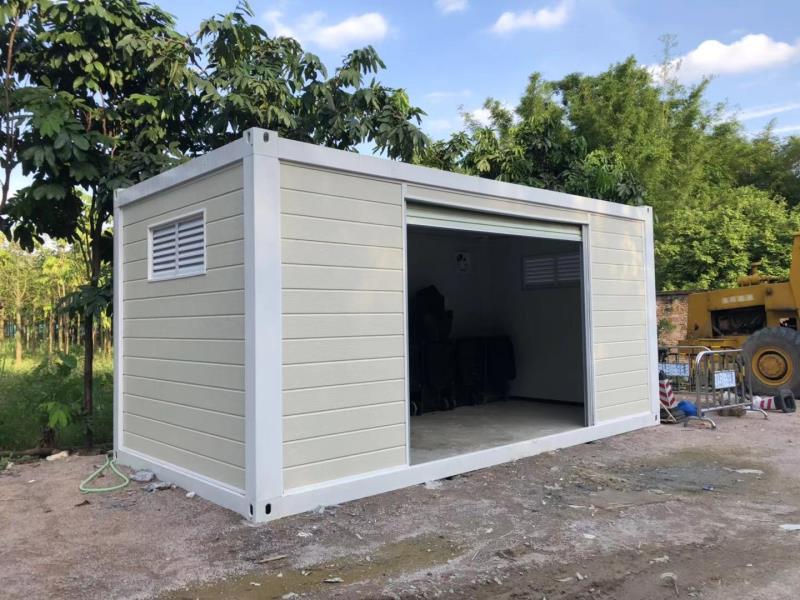Beyond their original role as a platform to store and ship items and materials during freight, shipping containers have expanded into solutions we know as local storage units. While shipping containers are still the go-to choice for long-distance freight, self-storage units lean more toward storage solutions for permanent locations.
Even though self-storage units function the same way as conventional storage facilities, their anatomy could not be more different. As a result, understanding the elements of self-storage facilities will help you know how they can solve your storage problems.
Contents
Local Storage Units in a Nutshell

Despite having the same name as the JavaScript web storage facility, local storage units are offshoots of physical shipping containers. These units function as quick-to-install storage facilities in homes and offices where building new permanent storage rooms is impractical.
Since designers usually convert shipping containers to self-storage units, these units have all the benefits of containers. Durability, security, and protection capabilities common in shipping containers are all available in self-storage units.
Furthermore, local storage units are also extremely mobile thanks to their construction. Since builders do not need to install these units permanently, they can move them to other locations quickly if necessary.
Important Elements of Self-Storage Units

Local storage units, including Tradecorp’s, commonly have the following features to store important items and belongings. While other features may be available depending on the unit’s type, these features are almost always available in all self-storage units.
Rolling Door
A steel or aluminum rolling door secures the entrance to the container by rolling up into a small coil above the opening. It’s great for simple loading and unloading, and storage and workshops frequently use it since it is space-efficient and long-lasting.
Insulated Walls
Foam and fiberglass are two materials in insulated walls that regulate a container’s internal temperature. These walls are necessary to convert shipping containers into comfortable, energy-efficient offices, houses, or temperature-controlled storage.
Vinyl Flooring
High-traffic areas benefit greatly from the resilient, water-resistant nature of vinyl flooring. Because of its oil resistance, ease of cleaning, ability to absorb sound, and availability in various styles, people commonly use vinyl flooring in restrooms and shipping containers.
Castors with Twist-Lock
Twist-lock mechanisms on the castors enable users to fasten the storage units in position safely and firmly. These sturdy wheels come in handy when remodeling containers with frequent relocations like in pop-up stores or temporary offices.
Locking Bars
Vertical steel rods, known as locking bars, secure a container’s doors and keep out unwanted visitors. These bars are useful for providing further protection, especially when storing valuables.
Lockbox
A lockbox is a fortified steel box users can attach to a container’s door to prevent padlock tampering. It increases the security of storage containers and contents that are sensitive in some way.
Corner Castings
Corner castings are metal fittings available at each of a shipping container’s eight corners that are important for lifting, stacking, or securing containers. They offer structural stability and facilitate the effortless transportation of containers using cranes or forklifts.
Fixed Louver Air Vents
Louver air vents are important in letting airflow enter a shipping container, which lowers moisture buildup and stops mold and corrosion. As such, these vents are important for containers in humid areas or long-term storage.
Forklift Pockets
Forklift pockets are reinforced slots at the bottom of containers that allow for simple forklift lifting and movement. These are essential for loading containers into transport vehicles or moving containers into constrained places.
Surveillance Measures
Storage unit vendors like Tradecorp can provide surveillance features like 24/7 CCTV to monitor anyone entering or around the storage. CCTV units can be available from the initial installation or as an additional security feature.
Conclusion
Since local storage units are available with these true-and-tested features, they help everyone solve their headaches regarding storage problems. Suddenly, homes and offices no longer have to build permanent storage facilities just to store important belongings and assets. Should you need one or more, Tradecorp is ready to help you find the one you need right now. With over 35 years of experience in the container industry, there is no container-related problem Tradecorp cannot solve!


